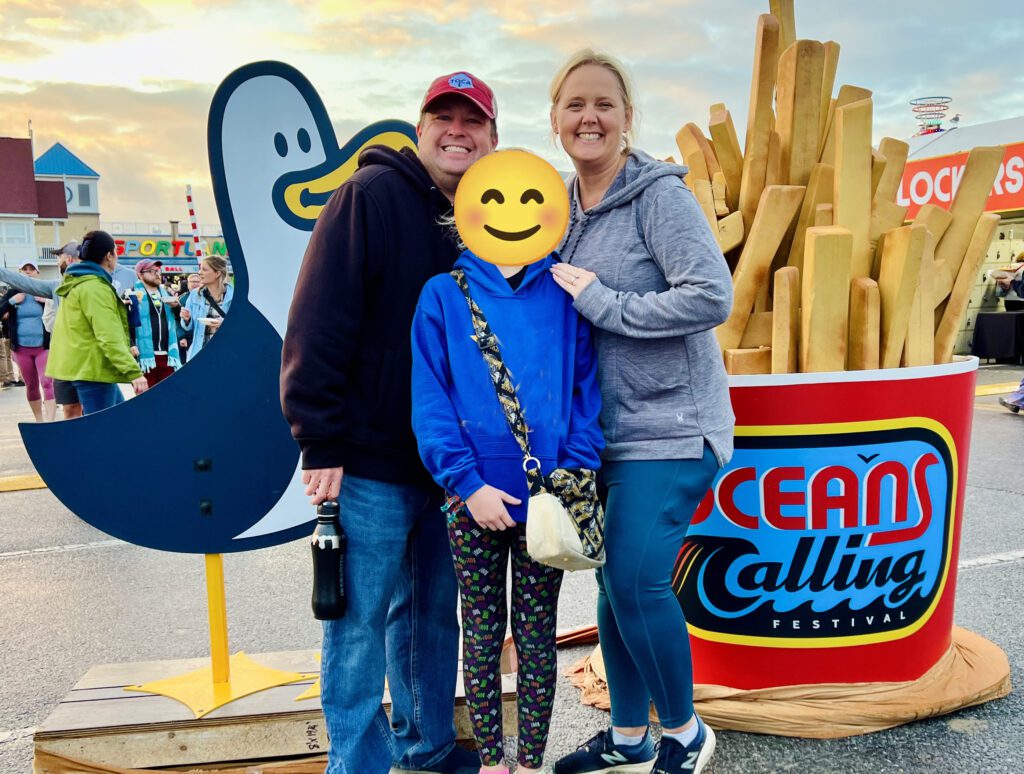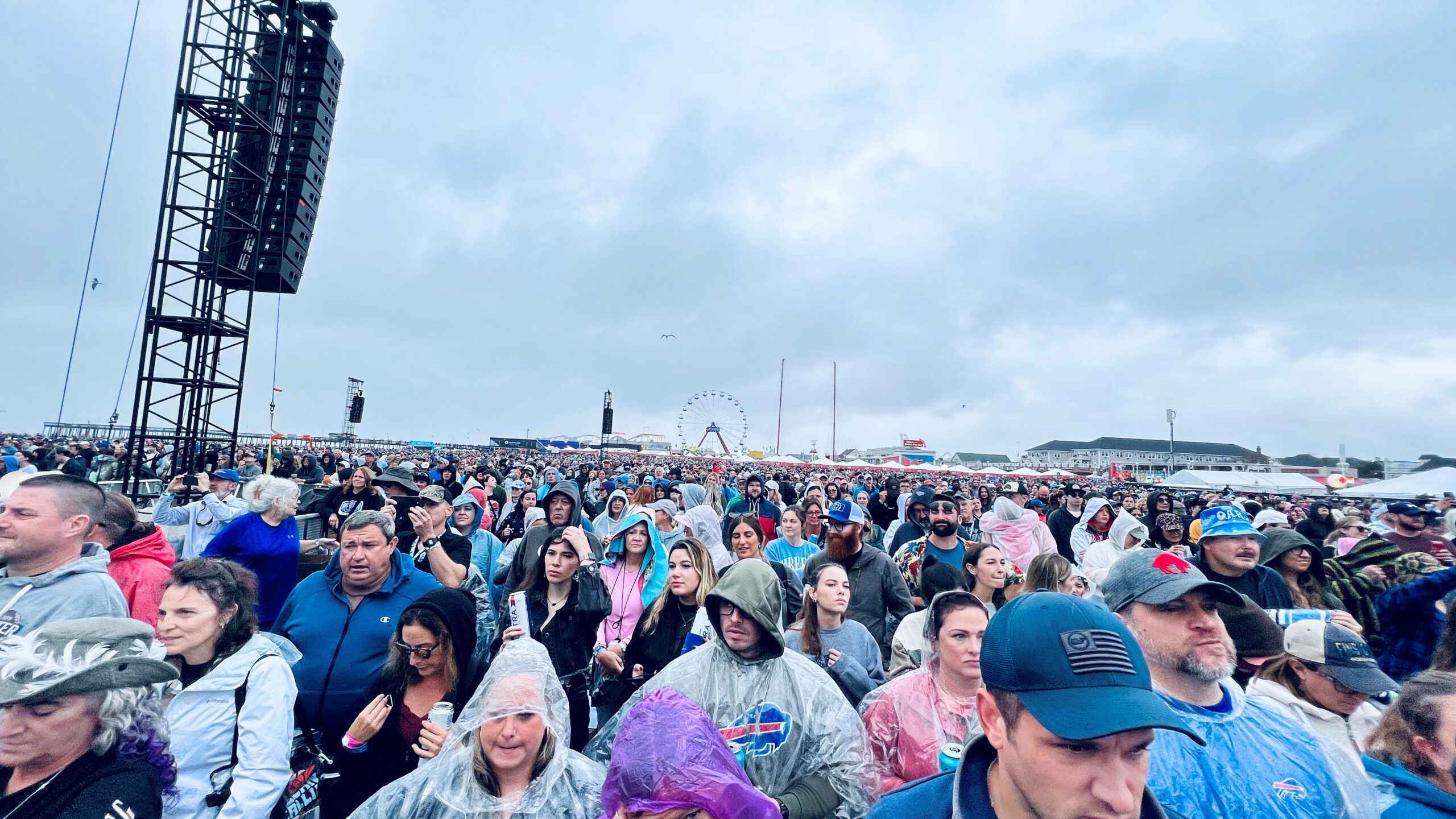Every industry has catchphrases and big concepts tossed around. In this post-pandemic world, these ideas often get thrown around for event professionals looking to revitalize their events. As I stood for hours at the Oceans Calling festival in Ocean City, MD, this past weekend, I wondered what “festivalization” actually means. And how do the nightmare stories (and Netflix documentaries) about the Fyre Festival, Woodstock ’99, and, more recently, Burning Man impact our desire to incorporate elements?
Events in the Social Media Era

Weeks and days leading up to the festival, there were numerous official and unofficial groups about the Ocean’s Calling Festival. The energy was palpable leading up to the event. People were planning meetups, recommending great places to eat and drink, and even arranging transportation.
This all changed once the event kicked off. Festival goers were complaining about everything. The security and food lines should have been shorter. The stages were too far apart. Everything costs too much. People stepped on their blankets. There needed to be more buses to transport people.
On the other hand, others posted that everything was great, and it was the best festival they had been to. Organizers were doing a fantastic job with everything. These posters were trying to drown out the noise and complaining about the complainers.
How can the same festival ignite such polar opposite opinions? And what lessons can we take away to apply to our events?
Understanding and Setting Expectations
Reading the rants on social media, it was clear that people didn’t know what to expect of an event of 50,000 people in a relatively small area and how to prepare for it. A beach festival is far different from the lawn at Wolf Trap. Weather can be unpredictable. Cell service can be spotty. Public transportation might be challenging at key times. Prices are inflated. The list goes on.
Setting the expectations of your audience is critical. As event organizers, we often assume attendees have experienced similar experiences and know what to expect. I would err on the side of educating every attendee. While not everyone will read these helpful guides, it helps.
For example, on Day 2 of the festival, the city and organizers made adjustments but advised attendees to seek other travel options if they didn’t want extended bus wait times. Based on the social media posts, everyone adjusted. Attendees can often quickly adapt if they know how to make it happen.
Know Your Demographics
As I scanned the crowd, I saw all age groups. Some of the artists attracted a younger audience for sure. That said, many of the acts performing and the cost tended to push the audience older and more affluent. Some of the most expensive tickets were nearly a thousand dollars. This was not an inexpensive event if you added on the cost of meals, merchandise and several nights’ accommodations.
Understanding your event’s demographics will help you develop a better experience to cater to those needs. At my age, I was excited to have something other than portable toilets and a place to sit. I was looking for more of a premium beverage and better food. While I am not saying that it isn’t of interest for every demographic, I heard some concertgoers looking for “cheap beer.” What will be important for your audience(s) and can you meet those expectations? And more importantly, can you increase revenue by knowing those desires?
Premium = Revenue
As you understand your demographic better, you also can understand the “revenue levers” to drive increased revenue. Can your audience afford (and want) a more premium experience?
At Oceans Calling, every step closer to the stage costs more money. Want nicer bathrooms with less of a line? Want access to premium lounges with food included? It’s smart business as people are willing to pay. Only some audiences will have the means to pay for such premiums. However, exploring upgraded experiences, even if just for your VIPs at no cost, will create a more memorable experience.
Logistics & Staffing
Having overseen city-wide festivals attracting 70k people, I know how critical staffing and logistics are. It is often easy to overlook and more challenging in the current employment landscape. Large signs and dedicated staff for “Festival Experts” were easy to find throughout the festival grounds when you needed help. Gates were well-staffed to get people into the festival quickly and safely. As part of expectation setting, the organizers had made multiple posts and communications on what was allowed into the festival to speed check-in. Even having bag or no bag lines and RFID scanner ticket checks after security, all were designed to keep traffic moving.
Involve the Community
Whether it is a conference, event or trade show – involving the community and surrounding businesses is just good business. Events are huge economic drivers for the towns they are hosted in.
Creating opportunities for local businesses to benefit and increase revenue goes a long way. At the Oceans Calling festival, boardwalk restaurants, shops, bars and entertainment got a piece of the nearly 50k per day attendance. It also gave out-of-town festival goers a chance to try a few of my OC favorites, Thrasher’s French Fries, a boardwalk Wrapper, ice cream from Dumser’s, Dolle’s Carmel corn, and many other local favorites. The festival also worked with local organizations to feature and help with items such as aluminum recycling.
Can your attendees become involved or provide services or benefit your host city? For example, The American Society of Landscape Architects (ASLA) conference exhibitors can donate their materials to the underserved communities in the town where they host their event.
What Makes a Festival a Festival?
So, what makes a festival so special? Is it the shared experience of the event? The music? Multiple venues? Or is it being surrounded by similar or like-minded people (a community per se)? The communities at our events and with organizations are what we often do well already. Will festivalization amplify that?
Or if we are being honest with ourselves as event professionals, is it simply bringing the “show back into our shows,” as Stephanie Selesnick, President of International Trade Information, says.
I would argue in this post-pandemic world; we need to understand who our audience is and what they want before we “festivalize” in hopes of attracting the TikTok or Instagram crowd to make our event “go viral.” Do the core tenets of a festival make sense for your group? Will it distract them from the business at hand, connecting buyers and suppliers or gaining content for career advancement? How does this impact the audiences differently of a B2B versus B2C events?
What does festilazivation mean to you and your events?
